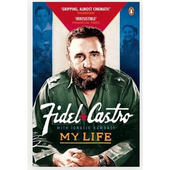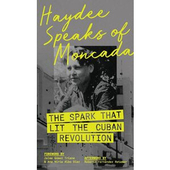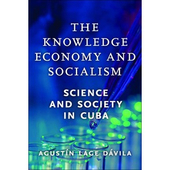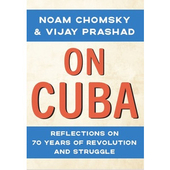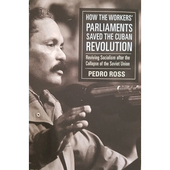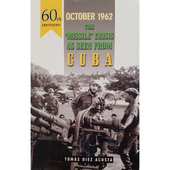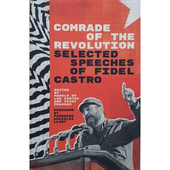How the Workers Parliaments Saved the Cuban Revolution
How the Workers Parliaments Saved the Cuban Revolution: Reviving Socialism after the Collapse of the Soviet Union
By Pedro Ross
A first hand account of a society mobilised from below at a critical time in its history.
See review below.
£13.50 inc p&p
| Check Basket |
Book review: How the Workers Parliaments Saved the Cuban Revolution: Reviving Socialism after the Collapse of the Soviet Union
Trade Unions at Centre of Cuba’s Revolution
When we are saying that we trust the people, we are saying that we trust our workers. We will always trust them and with the people and those workers Cuba will keep on winning said Cuban President Miguel Díaz-Canel Bermudez at last month’s 63rd Plenary Session of the National Council of Cuba’s trade union federation – Central de Trabajadores de Cuba (CTC).
This wide-ranging memoir by veteran CTC leader Pedro Ross provides an unrivalled insight into the central role played by revolutionary Cuban trade unionists in defending and extending the Cuban revolution since 1959. In his youth Ross was a construction worker who volunteered for the mass literacy campaign in the first years of the revolution. He went on to serve three terms as General Secretary of the CTC during the 1990s when the economic crisis, precipitated by the collapse of the Soviet Union, placed the Cuban revolution at mortal risk. He stood down in 2007.
The key focus of the book is on the Workers Parliaments set up in 1993/94 in response to the drastic impact of the loss of Cuba’s main trading partner – the islands GDP fell by 35percent and 80percent of imports were lost with oil supplies drastically reduced. In the same decade the US blockade was tightened culminating in the Helms Burton Act of 1996.
A mass consultation exercise, predicated on the principle that the workers are the owners and which involved 80,000 workplace meetings, was carried out over two months to discuss efficiencies, production measures and how to meet social needs in response to the economic crisis. Ross proudly recalls an unprecedented democratic and participatory process (which) elicited the commitment and creativity essential to developing feasible proposals for surviving the Special Period and his book describes the process in great detail with several case studies. It was socialism in action and a collective response to what Fidel described at the time as the most decisive stage in the history of the Revolution.
A foreword - by former UNISON official and co-ordinator of the Salud initiative Chris Remington - reminds us of the immense contribution of British trade unionists and the Cuba Solidarity Campaign in providing material aid and solidarity to the Cuban people in their hour of need.
Today, the Cuban trade unions continue to play a leading role in Cubas socialist development. Over 90 per cent of Cubas 5 million workers are unionised. They stand on the shoulders of giants such as Pedro Ross and many others of his generation who led Cuba through the Special Period.
Kevan Nelson for CubaSi spring 2023 magazine


